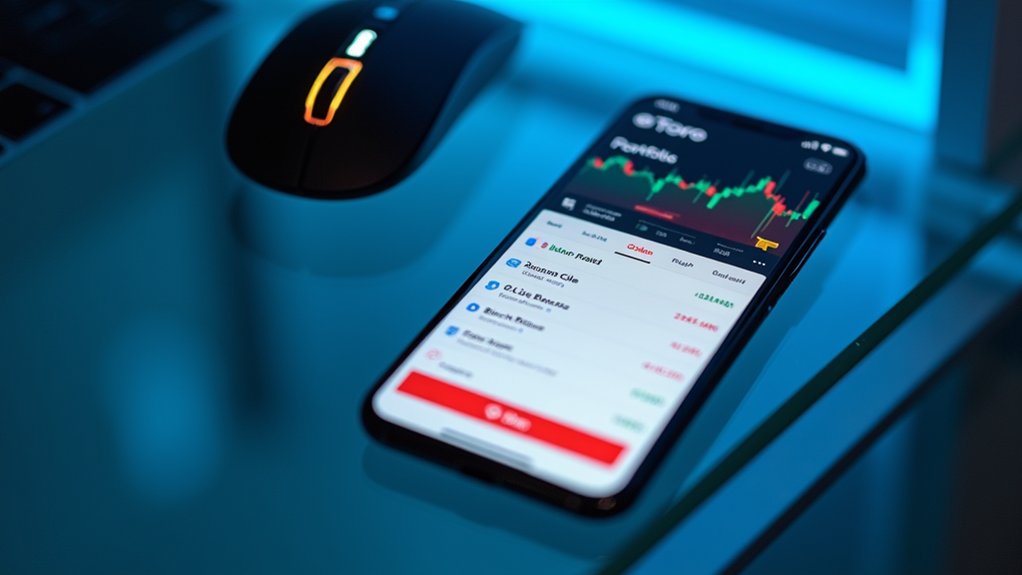Getting paid in cryptocurrency requires establishing a secure wallet, either hardware-based (Ledger, Trezor) for maximum security or software-based (MetaMask, Trust Wallet) for convenience. Once set up, share your public wallet address with clients to receive payments directly, potentially using stablecoins like USDC to mitigate volatility concerns. For businesses seeking automated solutions, payment processors like BitPay or CoinPayments can convert crypto to fiat instantly. The subsequent sections explore essential tax consequences and investment opportunities for crypto recipients.

While digital currencies continue to reshape the global financial landscape, receiving payments in cryptocurrency has emerged like a viable alternative to traditional banking systems for professionals, freelancers, and businesses seeking greater financial autonomy.
This shift begins with establishing a secure crypto wallet, where individuals must decide between hardware options, like Ledger or Trezor for maximum security, or software alternatives like MetaMask or Trust Wallet for convenience and accessibility. It is essential to ensure their chosen solution supports relevant blockchain networks and implements critical security measures including two-factor authentication and regular firmware updates.
Once a wallet is established, individuals can receive payments by sharing their public wallet address, an alphanumeric code that functions similarly to traditional bank account details but without the bureaucratic constraints of international banking.
Your public wallet address eliminates banking barriers while functioning identically to traditional account details for borderless transactions.
Professionals engaged in cross-border transactions often prefer stablecoins like USDC, which maintain value parity with fiat currencies while eliminating excessive transfer fees and processing delays characteristic of traditional financial institutions. Payment processors such as BitPay or CoinPayments further facilitate this process, offering automatic conversion to fiat currencies when stability is prioritized over cryptocurrency's growth potential. Businesses looking to expand globally can benefit from reduced transaction fees compared to traditional payment methods.
Tax consequences remain a critical consideration for cryptocurrency recipients, as regulatory frameworks develop globally to address this emerging asset class. Recipients must meticulously track transactions using specialized software like Blockpit or TaxBit, reporting income based on the market value at receipt and remaining cognizant of capital gains obligations when liquidating holdings. The enhanced anonymity provided by blockchain technology doesn't exempt users from their tax obligations, which vary substantially across jurisdictions. Understanding these tax implications is crucial as rewards from learn-and-earn programs are typically treated as income in many jurisdictions.
The specific requirements vary by jurisdiction, with some regions mandating formal reporting while others operate under self-disclosure frameworks.
The freelance economy presents particularly fertile ground for cryptocurrency adoption, with professionals leveraging both established platforms like Upwork and emerging decentralized alternatives to negotiate crypto-based compensation.
Many freelancers diversify their income streams by allocating portions of earnings to staking on proof-of-stake networks or participating in yield farming protocols, generating passive returns ranging from 3.2% to 7.1% annually while maintaining custody of their digital assets. This approach complements active income with investment growth potential.
Frequently Asked Questions
How Do I Report Crypto Income for Tax Purposes?
Individuals must report cryptocurrency income in the capacity of ordinary income on Schedule 1 of Form 1040, based on the fair market value at receipt.
For crypto sales or exchanges, Form 8949 and Schedule D document capital gains or losses, requiring meticulous cost basis tracking.
All crypto activities necessitate affirmative disclosure on Form 1040's digital asset question, while income exceeding $600 typically generates a 1099-MISC from the payer, though self-reporting remains mandatory regardless of amount.
Can I Convert Crypto Payments to Fiat Money Instantly?
Converting cryptocurrency to fiat currency can indeed be executed instantly through services like Transak Stream, which facilitates conversions within two minutes via designated wallet addresses linked to banking infrastructure.
The platform supports substantial transaction limits—up to $25,000 with Level-2 KYC verification—across 40+ cryptocurrencies and 29+ blockchain networks.
After completing the initial identity verification process, users gain access to immediate conversion capabilities, with payouts available across 145+ countries through diverse financial channels.
Which Wallets Offer the Best Security for Receiving Payments?
For receiving payments with ideal security, non-custodial wallets offer superior protection through private key control.
Electrum provides robust Bitcoin-specific security with Segwit support and open-source verification, while Crypto.com DeFi Wallet enhances protection through biometric authentication and Web3 firewalls.
Zengo's innovative MPC technology eliminates single points of failure by distributing private key fragments.
All secure wallets should incorporate offline seed phrase storage, transaction notifications, and regular software updates to mitigate unauthorized access risks.
Are There Payment Processors That Handle Crypto Billing Automatically?
Several payment processors specialize in automated crypto billing, with platforms like Acctual and Loop offering extensive solutions.
These services typically integrate seamlessly through APIs, enabling recurring payments via smart contracts while handling multi-currency settlements and conversions.
Modern processors provide additional functionality including compliance tools, real-time analytics, and customizable token acceptance, allowing merchants to receive payments in preferred cryptocurrencies while automatically converting to stablecoins or fiat to mitigate volatility risks.
What Happens if a Client Sends Crypto to the Wrong Address?
When a client sends cryptocurrency to an incorrect address, the consequences are typically irreversible.
Transfers to burn addresses or nonexistent wallets that match blockchain structure result in permanent loss, while funds sent to active wallets become the recipient's property.
Recovery options are limited to requesting voluntary returns from known recipients or utilizing cross-chain tools for compatible networks.
Exchange assistance remains possible only when their addresses are involved, underscoring the critical importance of transaction verification protocols prior to confirmation.









